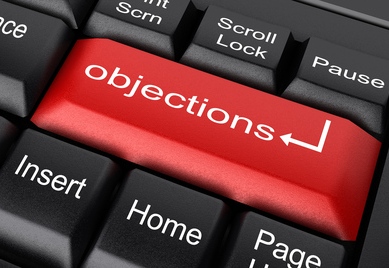By Abdul Khaliq
So exhausted and bored is the nation with the neverending anti-minority tirade of a section of society that it seems to have passed over the recent momentous judgment of the Supreme Court on the issue of conversions. By adjudicating that a Scheduled Caste (SC) Christian or Muslim who converts to Hinduism will qualify for reservation benefits, if his forefathers belonged to a caste categorised as an SC, the highest court has given a huge fillip to “ghar wapsi”. Considering the historical fact that the majority of Christian and Muslim converts were originally Hindu Dalits, the recent judgment provides an attractive material inducement for converting to Hinduism. At its core, the Supreme Court ruling reinforces the Constitution’s majoritarian approach to SC reservations.
Our constitutional pledge to be a secular republic is founded on the principle that the state will neither establish a religion of its own nor confer special patronage upon any particular religion. However, at its inception, the Constitution manifested a clear bias in favour of the majority religion. The Constitution (Scheduled Castes) Order, 1950, arbitrarily circumscribed the meaning of the wide-ranging colonial term “depressed classes” and redefined it as “scheduled castes” by excluding from its ambit any person who professed a religion different from Hinduism.
The subsequent amendments to the Constitution that granted SC status to SC Sikhs in 1956 and to SC Buddhists in 1990 are the culmination of a pattern of thought enshrined in the Constitution that clearly privileges Indic religions over those that have originated elsewhere. Article 25, made famous by US President Barack Obama, unambiguously states in the explanatory note that “the reference to Hindus shall be construed as including a reference to persons professing the Sikh, Jain and Buddhist religions”. The purport of Article 25 is that a Sikh, Buddhist or Jain can lawfully enter a temple but, by implication, not a Christian or a Muslim. The counter-argument that the Constitution has separate provisions for Christians and Muslims is specious justification, as the minority provisions apply to Buddhists and Sikhs as well.
The constitutional endorsement of SC status for SC Sikhs and SC Buddhists but the denial of this status to SC Christians and Muslims is tantamount to licensing and sanctioning discrimination on the basis of religion. This bias closely resembles the Hindutva philosophy that Bharatvarsha has, in addition to Hinduism, given birth to the religions of the Buddhists, Sikhs and Jains, who are all therefore Hindu, as opposed to Muslims and Christians, whose religions originated elsewhere and are thus outsiders.
The stated reason for rejecting SC status for Dalit Christians and Muslims is that SCs who convert to these religions no longer face any social or economic stigma. The court observes: “Once such a person ceases to be a Hindu and becomes a Christian, the social and economic disabilities arising because of Hindu religion cease, and hence it is no longer necessary to give him protection…” This is untrue. Caste consciousness is part of our everyday lives; its universality renders it normal. However much we may delude ourselves, we are all scarred by it. Dalits, irrespective of their religious beliefs, are oppressed victims of deep prejudice and the irrational, wicked belief in Dalit inferiority. To make the argument that the caste system is not recognised by Christianity and Islam is to ignore the realities of the country. Moreover, by the same yardstick, it is contradictory to grant SC status to SC followers of Sikhism and Buddhism, which doctrinally abjure caste.
Mahatma Gandhi, who knew this country and its people better than anyone else, had this to say: “Whether the harijan is nominally a Christian, Muslim, Hindu or Sikh, he is still a harijan… He may change his garb and call himself a Catholic harijan or a Muslim harijan or a neo-Sikh, his untouchability will haunt him during his lifetime.” B.R. Ambedkar asked the rhetorical question: “What good is Christianity for a Hindu if it does not do away with his caste?” India’s most distinguished social anthropologist, M.N. Srinivas, noted that “conversion to Christianity only changed the faith but not the customs, the general culture or the standing of the converts in society.”
Significantly, the Supreme Court, in various judgments, has underlined the obdurate hold of caste in our society. Even the latest ruling acknowledges this reality by invoking an earlier Supreme Court judgment in the S. Anbalagan vs B. Devarajan case, which states that converts “embrace other religions in their quest for liberation but return to their old religion on finding that their disabilities have clung to them with great tenacity”.
By penalising SCs who convert to Christianity or Islam, the Constitution Order of 1950 seeks to protect the hegemony of the dominant religion. The latest Supreme Court judgment amounts to an incentive to “reconvert” to Hinduism. Who says ours is not a Hindu rashtra?
(The writer, a former civil servant, is secretary general of the Lok Janshakti Party. The article was first published at Indian Express)






















